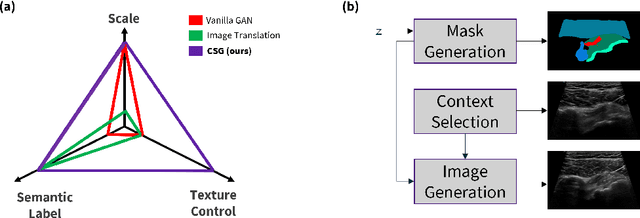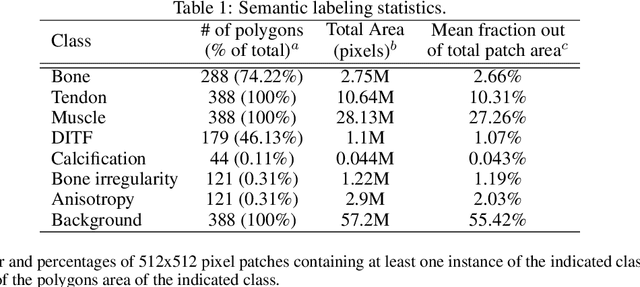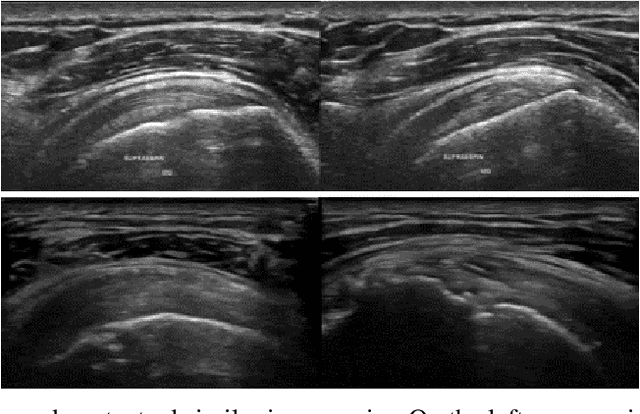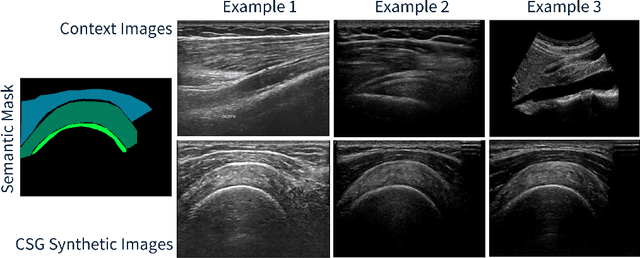CSG: A Context-Semantic Guided Diffusion Approach in De Novo Musculoskeletal Ultrasound Image Generation
Paper and Code
Dec 08, 2024



The use of synthetic images in medical imaging Artificial Intelligence (AI) solutions has been shown to be beneficial in addressing the limited availability of diverse, unbiased, and representative data. Despite the extensive use of synthetic image generation methods, controlling the semantics variability and context details remains challenging, limiting their effectiveness in producing diverse and representative medical image datasets. In this work, we introduce a scalable semantic and context-conditioned generative model, coined CSG (Context-Semantic Guidance). This dual conditioning approach allows for comprehensive control over both structure and appearance, advancing the synthesis of realistic and diverse ultrasound images. We demonstrate the ability of CSG to generate findings (pathological anomalies) in musculoskeletal (MSK) ultrasound images. Moreover, we test the quality of the synthetic images using a three-fold validation protocol. The results show that the synthetic images generated by CSG improve the performance of semantic segmentation models, exhibit enhanced similarity to real images compared to the baseline methods, and are undistinguishable from real images according to a Turing test. Furthermore, we demonstrate an extension of the CSG that allows enhancing the variability space of images by synthetically generating augmentations of anatomical geometries and textures.
 Add to Chrome
Add to Chrome Add to Firefox
Add to Firefox Add to Edge
Add to Edge